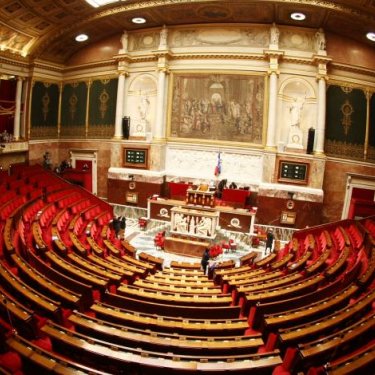RSF hails safeguards for media independence and confidentiality of sources in law approved today

Reporters Without Borders (RSF) hails the French National Assembly’s final adoption today of a bill “aiming to strengthen media freedom, independence and pluralism.” Although not completely satisfactory, it provides additional safeguards for journalists’ sources and media independence.
Tabled last year by Deputy Patrick Bloche with the avowed aim of preventing editorial interference by media owners seeking to defend their business interests, it was prompted by Canal+ owner Vincent Bolloré’s censorship of a documentary about an advertiser.
Expanded in the course of parliamentary debates about whistleblowers and the confidentiality of sources, it not only provides significant new safeguards for sources but also establishes mechanisms that provide editorial decision-making with (somewhat) more effective protection from various kinds of pressure, including economic pressure.
The new law states that the confidentiality of sources may be violated only “in exceptional circumstances,” subject to a judge’s prior authorization, and only to prevent or to punish a series of precisely defined offences. And it extends the range of those benefitting from the provisions protecting sources.
These provisions constitute an undeniable improvement on the law in force until now, the 2010 law presented by then President Nicolas Sarkozy’s justice minister, Rachida Dati, which has been widely criticized by journalists for being vague and imprecise.
Beside, the new law says that all journalists “have the right to reject pressure, to refuse to divulge their sources and to refuse to sign an article, broadcast, broadcast segment or contribution of which the form or content has been modified without their knowledge or against their wishes.”
It also requires media companies to adopt ethics charters and to establish “committees for the honesty, independence and pluralism of news coverage and programmes.” And it provides France’s broadcast media regulatory authority, the CSA, with additional resources with aim of safeguarding newsroom independence vis-à-vis the economic interests of shareholders and advertisers.
Coincidentally, the French Senate is currently preparing to debate amendments to the 1881 press law that would deal a major blow to media freedom. RSF is therefore all the more pleased that the National Assembly has adopted the Bloche Bill in this form and has resisted the Senate’s repeated attempts to eviscerate it.



